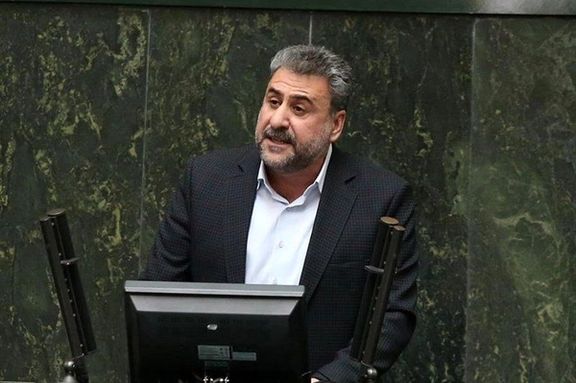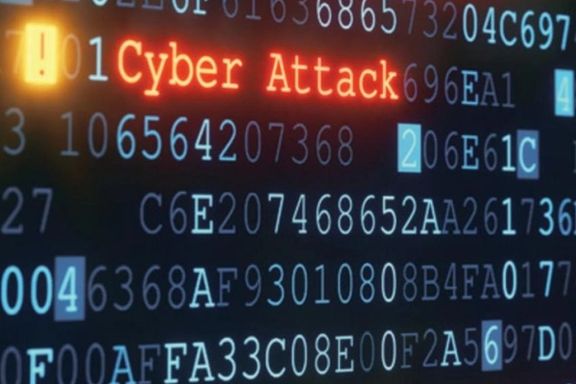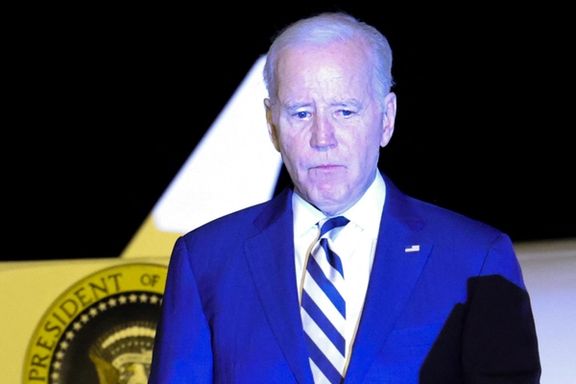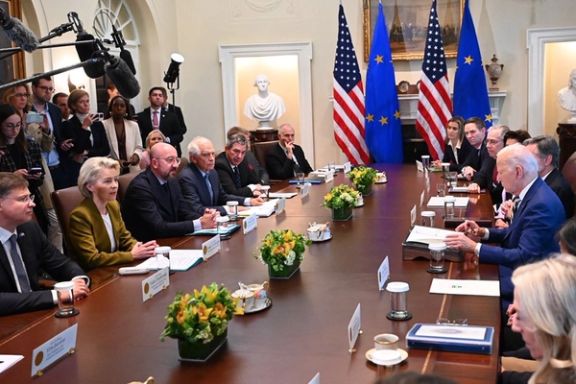Iran Says Some Israeli Captives To Be Released If Gaza Strikes Cease

Iran’s ambassador to Thailand says some of the hostages taken captive by the Hamas after their attack on Israel will be set free when the IDF ceases bombardment of Gaza.

Iran’s ambassador to Thailand says some of the hostages taken captive by the Hamas after their attack on Israel will be set free when the IDF ceases bombardment of Gaza.
According to the Bangkok Post, Reza Nobakhti, speaking at a press conference held in Bangkok, discussed the hostages who hold Thai citizenship. He mentioned that he had been informed that Iran's President Ebrahim Raisi, who met with Ismail Haniyeh, the political leader of Hamas in Qatar last week, requested the release of the hostages as well as Filipino captives.
Among the approximately 200 hostages that Hamas has brought from Israel to Gaza, there are citizens from various countries, including 19 Thai nationals and individuals from the Philippines.
Nobakhti stated that all Thai hostages are being kept "safely in good health" in Palestinian territories, and the "well-being of Thai hostages is the main concern of Iranian authorities."
As of now, at least 30 Thais have been killed since the start of the war between Hamas and Israel.
He added that Hamas has agreed to release the hostages; however, “the challenge is that, due to Israel's continuous bombardment, they are unable to transfer the hostages from Gaza to Israel.”
On Friday Hamas announced the release of two American hostages, a mother and her daughter, following Qatar's mediation.
Bloomberg also reported that the United States and some European countries have called on Israel to postpone the ground offensive in the Gaza Strip, considering the ongoing negotiations for the release of hostages via Qatar.
Israel, in response, stated that the release of two American hostages by Hamas will not affect the country's ongoing military operations.

A prominent Iranian politician has called for the establishment of a tribunal to bring to trial the statesmen who have jeopardized Iran's national interests.
The former head of the Iranian parliament's National Security and Foreign Relations Committee Heshmatollah Falahatpisheh has told the press in Iran that three groups of Iranian statesmen should be put on trial on charges of weakening the country by their injudicious actions and policies.
He identified the three groups as "Those who have sacrificed national interests for factional political gains, those who have benefitted from international sanctions and plundered the country's financial resources, and those who prevented the forming of a rational foreign policy."
These characteristics point to ultraconservatives who have opposed cordial relations with the West and the JCPOA nuclear agreement between Iran and the United States. The same faction of hardliners also opposed accession to financial regulations set by the international Financial Action Task Force (FATF) that could have facilitated international trade and banking, as well as compromise with the European and American partners to the JCPOA that could have paved the way for ending the sanctions that have paralyzed Iran's economy.
Meanwhile, Falahatpisheh charged that the same ultraconservative groups, who previously claimed that furthering the negotiations to revive the 2015 nuclear deal was treason against the country's national interests and prevented the passing of the FATF bills, are currently pretending to be supporting the JCPOA and the ratification of financial regulations.

He was alluding to President Ebrahim Raisi and his ultraconservative economic teas and populist supporters in the government who have asked Supreme Leader Ali Khamenei to revive the debates about the FATF bills at Iran's Expediency Council, where the bills have been shelved since 2017 because of faction fighting at the parliament and government.
Falahatpisheh said that these groups, which he did not specifically identify, have squandered billions of dollars of the country's financial resources through their obstructive measures.
In another development, the conservative Jomhouri Eslami daily, a critic of the government policies wrote on Thursday that while it's a positive step that some of the country's officials have come to realize that their policies concerning the JCPOA and FATF were mistaken, these politicians should be held accountable for their decisions and compelled to bear the consequences of their detrimental actions.
The daily stated: "The people certainly welcome this change of approach on the part of the politicians who used to oppose the nuclear deal and healthy international trade and banking. But those politicians should be held accountable for the losses they imposed on the country's economy."
Similar to Falahatpisheh, Jomhouri Eslami also pointed out that some of the current advocates of the JCPOA and FATF are the same individuals who used to dismiss the nuclear agreement and FATF. "They asserted that they could address the country's economic problems without becoming party to the FATF conventions. They also contended that joining the convention would result in divulging Iran's economic secrets to foreigners and compromising the country's sovereignty."
The daily noted that during parliamentary discussions about the FATF, some individuals did not have a clear understanding of the acronym's meaning, and others even misspelled it.
Jomhouri Eslami also warned that although some hardliners now say they have changed their minds about the two topics, there is still a powerful opposition. The daily further warned that the continuation of this dispute might create bigger problems for Iran.
In yet another development, former President Hassan Rouhani told the congress of his political party, the Moderation and Development Party on Wednesday, that "Iran's way out of its current problems is moderation." Referring to the monopoly of power by hardliners, he warned that when a minority rules in the country, the people will have to voice their demands in the streets."

Iranian football (soccer) fans on Friday defied a government decision to observe a minute of silence for Gazans during a match in Tehran, by blowing horns and shouting.
The video of the protest quickly circulated on social media, as yet another manifestation of the public mood in Iran opposing the government’s ideological and material support for the Palestinian militant group Hamas.
The video captures the moment when spectators at the start of the game, reacted to the announcement for a minute of silence for Gaza with noise and the blaring of horns. The show of opposition occurred less than a week after a similar incident at a match involving Persepolis FC, where fans of that team chanted slogans against individuals displaying Palestinian flags in the stadium.
Remarkably, the video even prompted reactions from official Israeli social media accounts and authorities. Iran's leadership announced its full support for Hamas, an Iran-backed militant group responsible for a brutal attack on Israel and the massacre of around 1,400 people on October 7. Nearly 200 people, including women and children have also been taken hostage by the militants.
While the Iranian regime's propaganda apparatus organized street protests in support of Hamas in Tehran and other cities, reports from Iran suggest that the majority of participants were regime supporters and members of the Revolutionary Guard (IRGC) and their families. Ordinary Iranians largely refrained from participating in these rallies, emphasizing the complex and multifaceted nature of public sentiment within Iran.

A hacking group with ties to Iran, known as the Crambus espionage group, executed an extensive intrusion into the computer systems of a Middle Eastern government.
The espionage group’s intrusion spanned an eight-month period from February to September 2023.
The cyber attackers employed a range of tactics during the operation, including the theft of sensitive files and passwords, Symantec revealed.
The perpetrators introduced a PowerShell backdoor called PowerExchange in one instance, providing them with the ability to not only monitor but also execute commands through email messages, surreptitiously forwarded from an Exchange Server. The campaign impacted a minimum of 12 computers, with strong indications pointing toward the deployment of backdoors and keyloggers on numerous other systems.
Evidence has also emerged suggesting that the attackers went as far as modifying Windows firewall rules to enable remote access, demonstrating their resourcefulness.
The Crambus espionage group has long been associated with espionage operations in multiple countries, including Saudi Arabia, Israel, the United Arab Emirates, Iraq, Jordan, Lebanon, Kuwait, Qatar, Albania, the United States, and Turkey.
The group is recognized for its prolonged intrusions, primarily focused on intelligence gathering and espionage. In recent times, they have incorporated a substantial social engineering component into the initial stages of their cyber-attacks.
The activities of the group over the past two years indicate that they pose a continuous threat to the Middle East and beyond.
The United States government had previously attributed the group to the Ministry of Intelligence of the Islamic Republic.

Hamas' attack on Israel that killed about 1,400 people aimed to disrupt a potential normalization of ties between Israel and Saudi Arabia, US President Joe Biden said on Friday.
Biden suggested Saudi wanted to recognize Israel in the comments he made at a campaign fundraiser.
Saudi Arabia gave its blessing to Persian Gulf neighbors United Arab Emirates and Bahrain establishing relations with Israel in 2020 under the previous US administration of Donald Trump.
Riyadh has not followed suit, saying Palestinian statehood goals should be addressed first.
"One of the reasons Hamas moved on Israel ... they knew that I was about to sit down with the Saudis," Biden said.
"Guess what? The Saudis wanted to recognize Israel."
Iran’s clerical regime, which has been the main financial and military backer of Hamas opposed any normalization deal, and top Iranian officials expressed their satisfaction that the Hamas attack apparently disrupted the process.
The potential normalization of relations with Saudi Arabia and other Arab states was a top priority for Secretary of State Antony Blinken during his June trip to Riyadh.
Blinken told CNN on Oct. 8 that "it wouldn’t be a surprise that part of the motivation (for the attack) may have been to disrupt efforts to bring Saudi Arabia and Israel together."
Biden told CBS' 60 Minutes in an interview that aired last Sunday that the prospect of normalization was "still alive, it's going to take time."
Israel responded to the Oct. 7 attack by pounding Gaza with air strikes, killing more than 4,000 people, and has said it will act to free hostages taken by Hamas militants while wiping out the group.
With reporting by Reuters

Two weeks after Hamas attacked Israel, diplomatic efforts have intensified to prevent a full-blown regional war involving Iran and its proxies in the Middle East.
On Friday, President of the EU Commission Ursula von der Leyen, who has traveled to Washington for a US-EU summit, raised the issue with US President Joe Biden.
“We must work actively to prevent regional escalation,” von der Leyen said, “I am particularly concerned about Iran and its proxies. We have all seen the incidents involving missiles and drones from Yemen potentially targeting Israel.”
Pentagon officials confirmed Friday that the American warship USS Carney intercepted 4 cruise missiles and 15 drones over a period of 9 hours in the Red Sea, all headed towards Israel reportedly.
Targeting Israel from a place as far as Yemen is yet another worrying sign that the Israel-Hamas conflict may very well escalate beyond Gaza.
Biden suggested on Friday that the aim of Hamas' attack on Oct. 7 was to disrupt the potential normalization of relations between Saudi Arabia and Israel.
Tensions run high, particularly since an explosion in a Gaza hospital for which Israel and Hamas blame one another. Arab leaders are anxious about the popular rage in their countries, created by the plight of Gazans.
Many fear that the war between Israel and Hamas may bring in other regional actors such as Hezbollah or Shi’a armed groups in Iraq.
German foreign minister Annalena Baerbock warned these groups to not enter the conflict. “I'm warning Iran,” she said during her trip to Israel, “I'm warning Shiite militias in Iraq, I'm warning the Houthi in Yemen not to ignite and join in the terror."
The biggest threat to Israel, however, is Hezbollah in Lebanon, which has been engaged in a relatively low-profile war with Israel for more than a week. The Group has reportedly amassed tens of thousands of rockets since Israel’s last attack on southern Lebanon in 2006.
Hezbollah’s shelling of northern Israel has forced the country’s Defense Ministry to preemptively evacuate around 20,000 of the border town of Kiryat Shmona.
There is little doubt that Hezbollah, Houthis, and other militant groups in the region are more emboldened than ever before. And more than a few in Washington and elsewhere are pinning the blame on President Biden for what they see as a cowed Iran policy.
Senator Tom Cotton, a vocal critic of the administration said Friday: “President Biden needs to make it crystal clear to Iran that we will treat any proxy attack on American targets as an attack by Iran itself and respond accordingly. Anything less invites more violence.”
In a rare speech from the Oval Office Thursday evening, President Biden asked for billions to be spent on the conflicts in Ukraine and Israel, but strikingly mentioned Iran only once.
Around the same time as Biden was addressing Americans, rockets hit a military base near Baghdad's international airport which hosts US troops and forces from other countries. Ironically, this was the day after a big chunk of UN sanctions on Iran –including on its missile program– expired under the terms of the 2015 Nuclear Deal.
“Biden has given Iran another gift by permitting a set of UN sanctions on Iran to expire, even after Iran and its terror proxies orchestrated a heinous attack massacring and kidnapping American and Israeli citizens,” said Ron DeSantis, Governor of Florida and 2024 Presidential Candidate.
In a lengthy post on X, DeSantis laid out six actions aimed at curbing the Iranian regime's influence, which include "imposing severe sanctions," "halting all clandestine negotiations and agreements," and "urging US allies to designate the IRGC as a terrorist organization."
“America must turn the screws on the Mullahs,” he concluded.
Republicans on the Capitol have been mounting pressure on Biden for many months, especially since the ‘double scandal’ in September: the exposure of an Iran influence network and the $6 billion ransom to free five Iranian-American hostages held in Tehran.
On Thursday, Rep. Darrel Issa introduced a bill that would force the Biden administration to sanction Iran, according to Fox News. He hammered Biden for ‘systematically’ under-enforcing oil sanctions and freeing Iranian funds in Iraq.
“This comprehensive legislation marks a necessary course correction in American policy to treat Iran not as a strategic partner, but as the enemy they are," he said, calling his bill the No Funds for Iran-Backed Terror Act.
The measure was introduced Thursday. Republicans in the House have still yet to come to agreement to elect a new speaker after Rep. Kevin McCarthy was voted out from the post earlier this month.
The legislation cannot be considered until a new House speaker is elected.